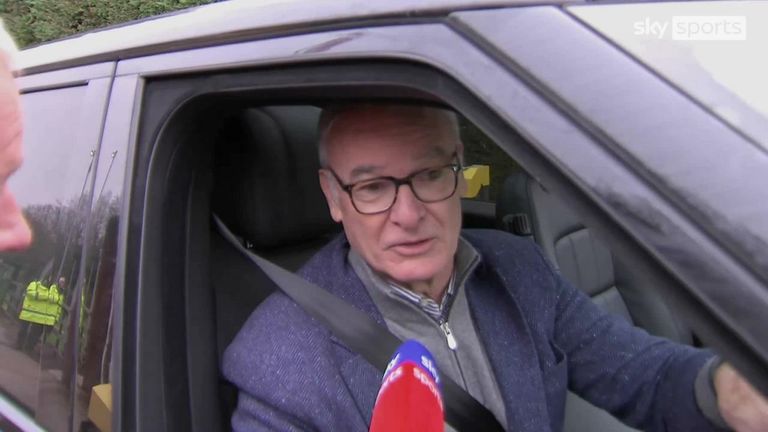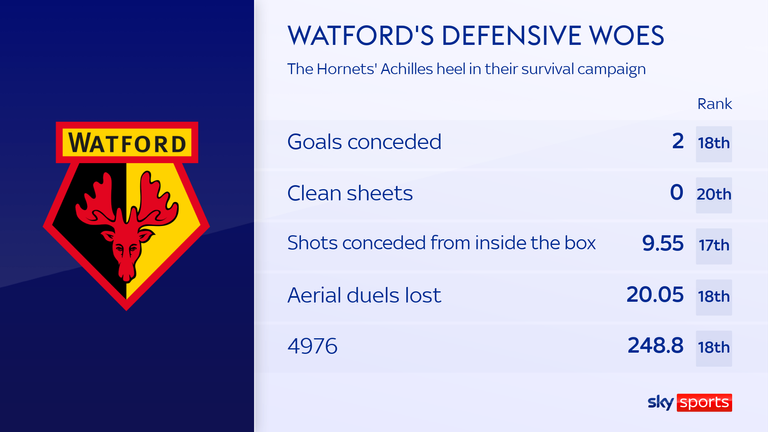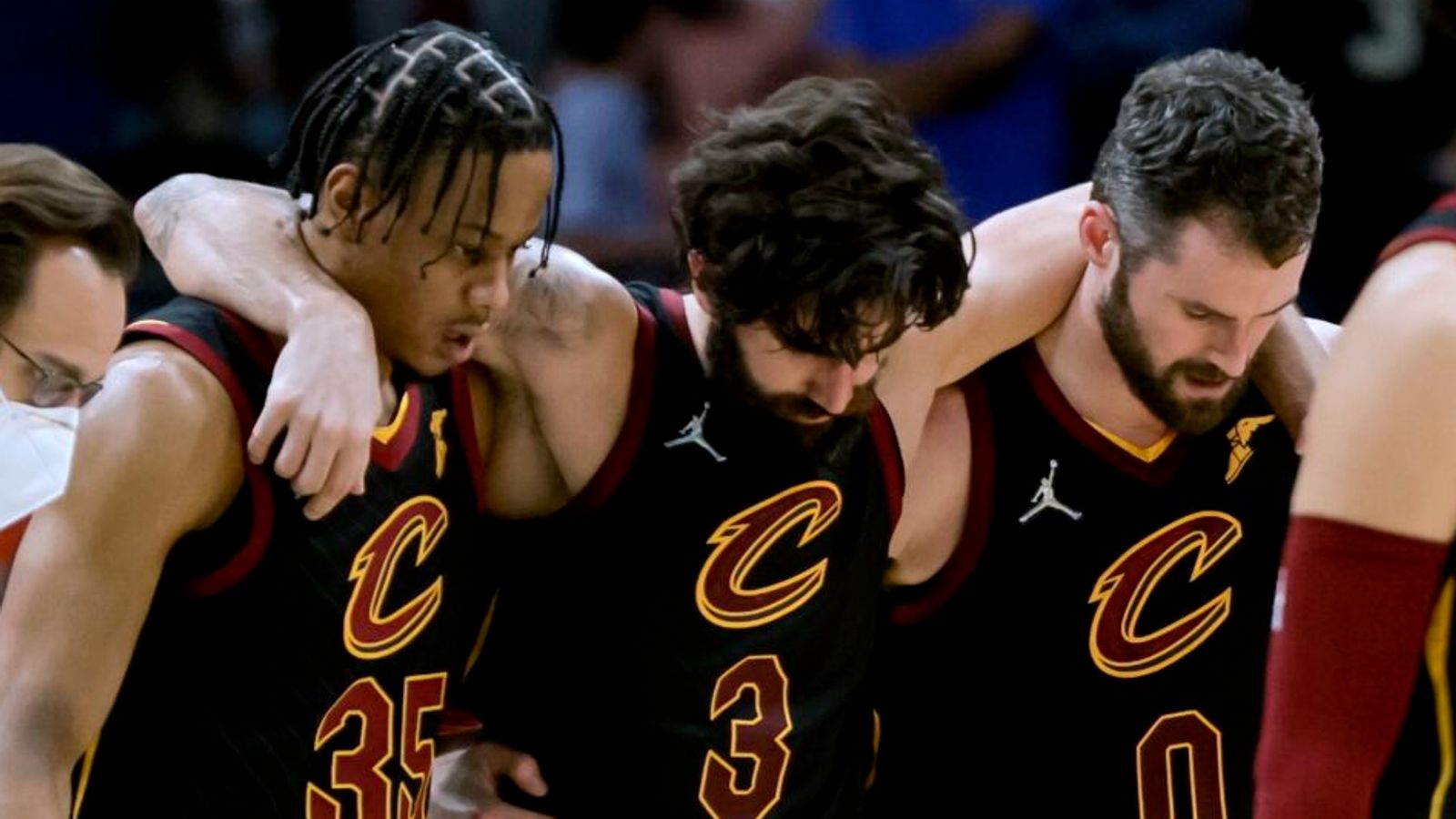Claudio Ranieri: Is Watford’s sacking policy justified as Hornets approach 16th permanent manager in 10 years? | Football News
As Watford close in on Roy Hodgson as their 16th permanent head coach in under 10 years, are the Hornets actually right to pull the plug when things start going south?
Watford’s hire-’em-fire’-em policy has won them few admirers across the English game. Before Claudio Ranieri even had a chance to take his first training session following his appointment in October, jokes had already been made about how long he would last in the Vicarage Road dugout.
This is nothing new – jibes have been aimed in the direction of the Hornets ever since their first promotion campaign in 2014/15, when they were led by no fewer than four different head coaches.
It was no huge surprise the tongue-in-cheek answers about Ranieri weren’t far off the reality. Three and a half months later, it’s back to square one, with Hodgson already lined up to take the top job until the end of the season.
Ranieri even foreshadowed his own demise when asked about Rafa Benitez’s sacking earlier this month and saying: “Maybe you are not used to it in England but in Italy they change managers like they buy an ice cream.”
You imagine Watford’s Italian owner Gino Pozzo hasn’t bought much ice cream at their London Colney training base this month, but his penchant for dispensing with managers is a lot less weather dependent. His exit meeting with Ranieri on Sunday was the 11th sacking he has dished out since taking over the club in 2012.
The average lifespan of a head coach at Vicarage Road in that time has been 255 days, 27 fewer than the 2021/22 Premier League season.
But across those hires and fires, Watford have twice been promoted to the Premier League and spent six of the last seven seasons playing top-flight football, a record which can only be matched by the halcyon days of Graham Taylor’s first spell during the 1980s. Four decades on he remains, Elton John aside, the most legendary figure in the club’s history.
“A lot of people are critical about the way Watford hire and fire coaches, but you have to say, from their perspective, they believe it’s something that works for them,” said Sky Sports News’ chief reporter Kaveh Solhekol as the news of Ranieri’s dismissal broke.
“The head coach is not in charge of the recruitment strategy, he’s given players to work with, and if he succeeds, he keeps his job – if he doesn’t, he loses his job.”
A lot of Watford’s detractors point to the benefits of stability, an often undervalued commodity in football as the long-term projects of Brentford and Brighton can attest. But does Watford’s relative success during Pozzo’s reign prove one in the eye for those critics?
Watford normally vindicated over desire for change
Plenty of coaches earn a ‘new-manager bounce’ after taking over clubs, but whether that continues longer-term has become a subject of debate even for the scientific community. One Warwick Business School study, using Premier League data, concluded that between 12 and 18 games after a new appointment any upturn in results fades away.
The same can’t be said at Vicarage Road. Of the 12 head coaches Pozzo has employed – not including Oscar Garcia or Billy McKinley, whose ultra-short-term reigns both ended for non-footballing reasons – eight have overseen a rise in the club’s points-per-game tally across their first 20 games in charge, in comparison to the 20 before they took over.
The one caveat comes in the form of Vladimir Ivic, whose predecessors were managing in the Premier League while he had the job of leading Watford in the Championship against lesser opposition. Even so, across a decade and the 10 managers who have reached 20 games at the helm, the 0.27 points-per-game improvement would translate to 10 points a season. Given the often fine margins between survival and relegation from the Premier League, that tally has the potential to prove significant.
“Sometimes players do need that kind of circumstance to give them that extra couple of per cent to prove themselves again,” former Watford goalkeeper Rene Gilmartin, who worked under six of the Pozzo appointments, told Sky Sports.
“It absolutely would [keep players on their toes]. I can’t pretend I was playing a lot of games at Watford, I was a character in the dressing room and a part of that side of it.
“I think the players, especially the foreign ones, are coming over trying to make themselves a career in England – when a new manager comes in they know they’ve got to prove themselves again, and I think that plays a part.”
Player power a dressing room issue?
If Watford’s players do get a meaningful boost from a new face in the dugout – and the results certainly suggest this is the case – then it also raises questions as to why they need cajoling at such regular intervals. Watford’s policy, as one executive told Sky Sports News, is: “When things go wrong on the pitch, we don’t hope for a change – we make a change”.
Four of the 10 managers Pozzo has sacked have registered less than 0.5 points per game across their final five matches in charge. Does the club’s short-term outlook perpetuate itself by enabling players to down tools, safe in the knowledge any head coach is one bad run away from the sack? Former Norwich and Preston boss Alex Neil thinks so.
He told Sky Sports News: “The difficulty you’ve got, when you go into a job as manager, you want to be the most powerful person at the club in terms of making key decisions, in terms of how you work.
“At Watford, the manager is the weakest person at the club. If you then start making big decisions and upsetting a few people, which sometimes needs to happen, the difficulty you’ve got is the players know if they down tools for a bit and go on a poor run, the manager will go and the next guy comes in.”
That is not to say Watford’s approach doesn’t work, because their sustained spell in the Premier League proves it does. But there are valid points to be raised about Pozzo’s poor track record in appointing a head coach who either can command the long-term respect of either the dressing room or the board room – or ideally, both.
Do Watford’s problems bypass the head coach?
Given in most cases Watford’s results justify their decision to change their head coach, why are they heading straight back to the Championship, as things stand, and on course for a second relegation in three years? One defence of Watford’s managerial strategy is that player recruitment has always been conducted away from the head coach – but this may in turn be the club’s most pressing concern.
Going forward, few would question the potential of the Hornets’ firepower, with Emmanuel Dennis’ goal involvements among the league’s best this season, and Ismaila Sarr linked with Liverpool as recently as last summer.
At the other end of the pitch, investment has been sadly lacking. Even when things looked rosy during their opening-day win over Aston Villa, four of their back five had been part of the squad which conceded 64 goals in their last relegation season.
Some around the club consider October free transfer Nicolas Nkoulou their best defender, which says a lot given he spent three months unattached before he was picked up by the Hornets. Conceding 40 goals in their opening 20 games speaks even louder, including three on Friday against a Norwich side who had previously only scored 10 times all season.
That was, understandably, enough to see Ranieri given the boot but points to underlying issues which the Hornets have attempted to address with the January arrivals of left-back Hassane Kamara and centre-back Samir. The fact both played in that fateful defeat doesn’t do much to raise any optimism the squad, described as “talented” in the press release announcing Ranieri’s departure, can be rejuvenated by any head coach to remain in the Premier League.
“If we’re looking to add another body to the squad, another centre-back to shore up the defence is probably top of our wish list as Watford fans,” Mike Parkin from the Rookery End Podcast told Sky Sports News even before that Norwich debacle. “We’ve been good going forward, but defensively we’ve really struggled – so extra recruits there could be absolutely vital.”
While incoming head coach Hodgson is an appointment of quality and a manager with plenty of experience pulling teams back from the brink, perhaps Watford’s transfer window will prove even more crucial in their fight against relegation – and whether the 74-year-old becomes yet another short-term appointment or not.






